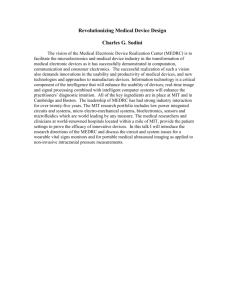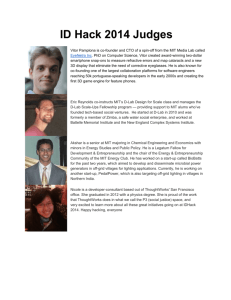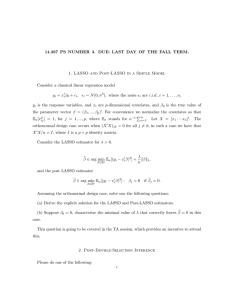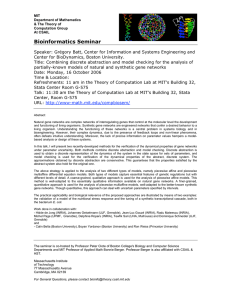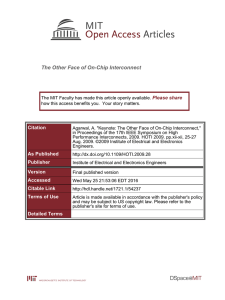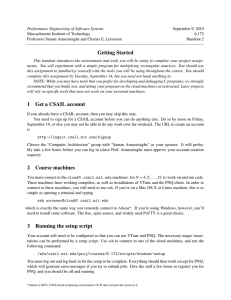Bioinformatics Seminar
advertisement
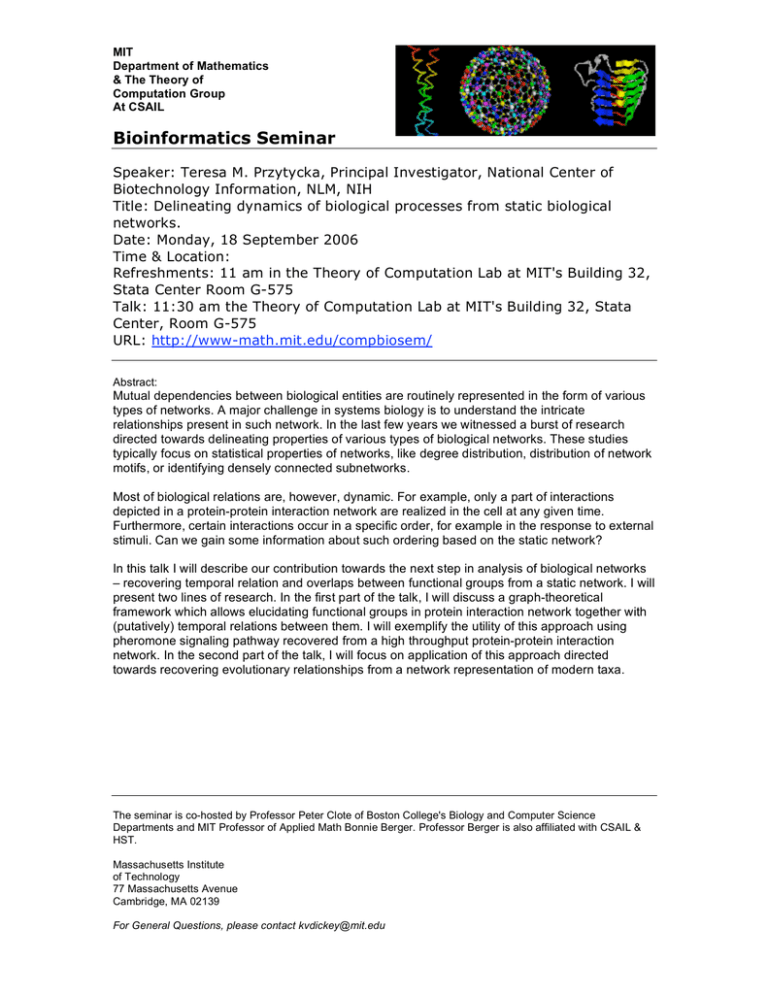
MIT Department of Mathematics & The Theory of Computation Group At CSAIL Bioinformatics Seminar Speaker: Teresa M. Przytycka, Principal Investigator, National Center of Biotechnology Information, NLM, NIH Title: Delineating dynamics of biological processes from static biological networks. Date: Monday, 18 September 2006 Time & Location: Refreshments: 11 am in the Theory of Computation Lab at MIT's Building 32, Stata Center Room G-575 Talk: 11:30 am the Theory of Computation Lab at MIT's Building 32, Stata Center, Room G-575 URL: http://www-math.mit.edu/compbiosem/ Abstract: Mutual dependencies between biological entities are routinely represented in the form of various types of networks. A major challenge in systems biology is to understand the intricate relationships present in such network. In the last few years we witnessed a burst of research directed towards delineating properties of various types of biological networks. These studies typically focus on statistical properties of networks, like degree distribution, distribution of network motifs, or identifying densely connected subnetworks. Most of biological relations are, however, dynamic. For example, only a part of interactions depicted in a protein-protein interaction network are realized in the cell at any given time. Furthermore, certain interactions occur in a specific order, for example in the response to external stimuli. Can we gain some information about such ordering based on the static network? In this talk I will describe our contribution towards the next step in analysis of biological networks – recovering temporal relation and overlaps between functional groups from a static network. I will present two lines of research. In the first part of the talk, I will discuss a graph-theoretical framework which allows elucidating functional groups in protein interaction network together with (putatively) temporal relations between them. I will exemplify the utility of this approach using pheromone signaling pathway recovered from a high throughput protein-protein interaction network. In the second part of the talk, I will focus on application of this approach directed towards recovering evolutionary relationships from a network representation of modern taxa. The seminar is co-hosted by Professor Peter Clote of Boston College's Biology and Computer Science Departments and MIT Professor of Applied Math Bonnie Berger. Professor Berger is also affiliated with CSAIL & HST. Massachusetts Institute of Technology 77 Massachusetts Avenue Cambridge, MA 02139 For General Questions, please contact kvdickey@mit.edu

